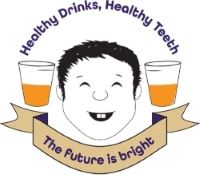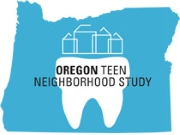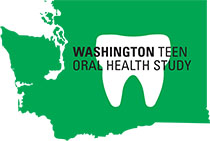Current Projects
Testing a Mobile App to Improve Toothbrushing Skills and Habits in Teens with Autism
 UG3DE033184 Grant, National Institute of Dental and Craniofacial Research (NIDCR), 2023-2028
UG3DE033184 Grant, National Institute of Dental and Craniofacial Research (NIDCR), 2023-2028
Study Website
This study focuses on adolescents with autism. The primary goals of this study are:
- Conduct usability testing on an existing toothbrushing app, evaluate overall user experience, and identify usability issues
- Gather feedback for iterative improvements to the existing toothbrushing app
- Develop the final app that will be evaluated through a randomized clinical trial
Understanding Oral Diseases in Cystic Fibrosis to Develop Tailored Preventive Dental Interventions
U01DE030418 Grant, National Institute of Dental and Craniofacial Research (NIDCR), 2021-2026
This study focuses adolescent and young adults (AYA) with cystic fibrosis (CF). There are three goals:
- Describe the prevalence and incidence of oral diseases in AYA with CF and identify corresponding risk factors with an emphasis on how to improve key oral health behaviors
- Evaluate cross-sectional and longitudinal associations between oral diseases and respiratory outcomes
- Explore microbiome pathways that link oral and respiratory health
Presentations
- Behavioral and Social Factors Associated with Oral Diseases in American Patients with Cystic Fibrosis (2024 IADR)
- Outside the Oral Cavity: Linking the Oral Microbiome to Respiratory Health Outcomes in Cystic Fibrosis (2024 IADR)
Posters
- Oral Bacterial Diversity Correlates with Pulmonary Function (2024 ATS)
- Prospective Study of Oral Health in Children and Adults with Cystic Fibrosis (2024 ERS)
Improving access to integrated oral health care for Medicaid populations in rural areas
Health Resources and Services Administration (HRSA), 2018-2026
This study focuses on people with Medicaid in Health Professional Shortage Areas (HPSA). There are two goals:
- Conduct ongoing, continuous Cycle Quality Improvement (CQI) process and annual outcome evaluation of dental clinic implementation
- Develop educational resources for other Washington Rural Health Centers, which describe key elements from planning to the implementation of high-quality dental care programs.
Reducing Sugared Fruit Drinks in Alaska Native Children
 U01DE027629 Grant, National Institute of Dental and Craniofacial Research (NIDCR), 2019-2025
U01DE027629 Grant, National Institute of Dental and Craniofacial Research (NIDCR), 2019-2025
Study Website
This study focuses on reducing added sugar intake in Alaska Native caregivers and children under age 10 years from 3 Yup’ik communities. There are three goals:
- Complete pre-intervention activities and finalize the intervention
- Implement the intervention and assess outcomes
- Identify intervention improvement opportunities and disseminate findings
Developing Topical Fluoride Hesitancy Measures for Causal Modeling and Intervention Research
R01DE026741 Grant, National Institute of Dental and Craniofacial Research (NIDCR), 2018-2024
Study Website
NIH RePORT
This study focuses on caregivers of children under age 18 years. There are three goals:
- Construct a theoretical model of topical fluoride hesitancy/refusal;
- Develop and validate 2 measures – a screening tool to identify fluoride hesitant/refusing parents and a diagnostic instrument to identify the reason(s) for topical fluoride hesitancy/refusal;
- Determine the stability of fluoride hesitancy/refusal behaviors.
Completed Projects
Water Fluoridation and Oral Health Equity in Washington
Washington State Legislature, 2022-2023
Study Website
This study focuses on the Black, Indigenous, People of Color (BIPOC) population residing in Washington or Texas. The goals of the study are:
- Understand the concerns, beliefs, and attitudes about drinking fluoridated tap water
- Conduct an oral health equity assessment with an emphasis on unequal access to fluoridated community water as a fundamental cause of oral health inequities
- Identify intervention improvement opportunities and disseminate findings
The Role of Food Insecurity in Shaping Dental and Mental Health Disparities among Low-Income Older Adults
Royalty Research Fund, University of Washington, 2021-2022
This study focuses on low-income older adults facing food insecurity. There are three goals:
- Identify the prevalence of food insecurity in low-income older adults and examine the relationship between food insecurity and dental outcomes.
- Assess how poor mental health conditions (e.g., depression) modify the relationship between food insecurity and dental outcomes
- Determine feasible and sustainable food-based interventions that address mental and dental health problems
Neighborhood Social Capital and Oral Health for Publicly-Insured Adolescents
 William T. Grant Foundation Scholars Program, W.T. Grant Foundation, 2013-2022
William T. Grant Foundation Scholars Program, W.T. Grant Foundation, 2013-2022
This study focuses on Medicaid-enrolled adolescents in Oregon. There are two goals:
- Determine the relationship between neighborhood social capital and adolescent oral health for Medicaid enrollees ages 12-17
- Identify the behavioral and biological mechanisms that mediate the relationship between neighborhood social capital and adolescent oral health.
Addressing Oral Health Disparities in Medicaid-Enrolled Special Needs Children with Chronic Health Conditions
 K08DE020856 Grant, National Institute of Dental and Craniofacial Research (NIDCR), 2010-2015
K08DE020856 Grant, National Institute of Dental and Craniofacial Research (NIDCR), 2010-2015
This study focuses on Medicaid-enrolled children with chronic health conditions. There are three goals:
- Identify the multi-level determinants of access to dental care for Medicaid-enrolled children with a chronic condition using administrative data;
- Evaluate the extent to which behavioral factors are associated with access to dental care for Medicaid-enrolled children with a chronic condition using survey data;
- Assess the relationship between access to dental care and the level of unmet dental need for Medicaid-enrolled children with a chronic condition using clinical data.
Dental Care Use for Medicaid-Enrolled Children with Autism Spectrum Disorders in the Iowa I-Smile Project
R40MC26198 Grant, Health Resources and Services Administration (HRSA), 2013-2014
This study focuses on Medicaid-enrolled children in Iowa. There are three goals:
- Determine if there are dental home disparities for newly Medicaid-enrolled children with ASDs in I-Smile;
- Identify the child-level, family-level, and geographic factors associated with having a dental home for Medicaid-enrolled children with ASDs;
- Assess dental use and costs related to dental homes for Medicaid-enrolled children with ASDs.
Dental Care Transitions for Adolescents with Special Health Care Needs
American Academy of Pediatrics, Community Access to Child Health (CATCH) Planning Grant, 2012-2014
This study focused on dental care transitions for adolescents with special health care needs in Washington. There were three goals:
- Identify the barriers and facilitators of dental care transitions from parents by conducting focus groups and interviews.
- Document adolescent perspectives on dental care transitions by conducting adolescent-parent dyad interviews.
- Identify the barriers and facilitators of dental care transitions from general dentists and pediatric dentists.
First Preventive Dental Visit: Disparities in Needs, Costs, and Behavioral Insights
RC1DE020303 Grant, National Institute of Dental and Craniofacial Research (NIDCR), 2009-2010
This study focused on identifying the determinants of preventive dental visits for Medicaid-enrolled children under age 6 years in Iowa.
- Webinar- Centers for Medicare and Medicaid Services, October 2013, Relationship between Medical Well Baby Visits and First Preventive Dental Visits for Medicaid-Enrolled Infants
- Webinar Transcript (PDF)
- Webinar Slides (PDF)
- Responses to Webinar Attendee Questions (PDF)
Korean and English Language Infant Oral Health Education Flipcharts for Caregivers of Korean-American Infants in Washington State
American Dental Association Foundation, Samuel D. Harris Fund for Children’s Dental Health Grant, 2011
This study focused on developing and testing an intervention based on culturally-tailored, bilingual oral health educational materials for parents of Korean American infants under age 6 years.